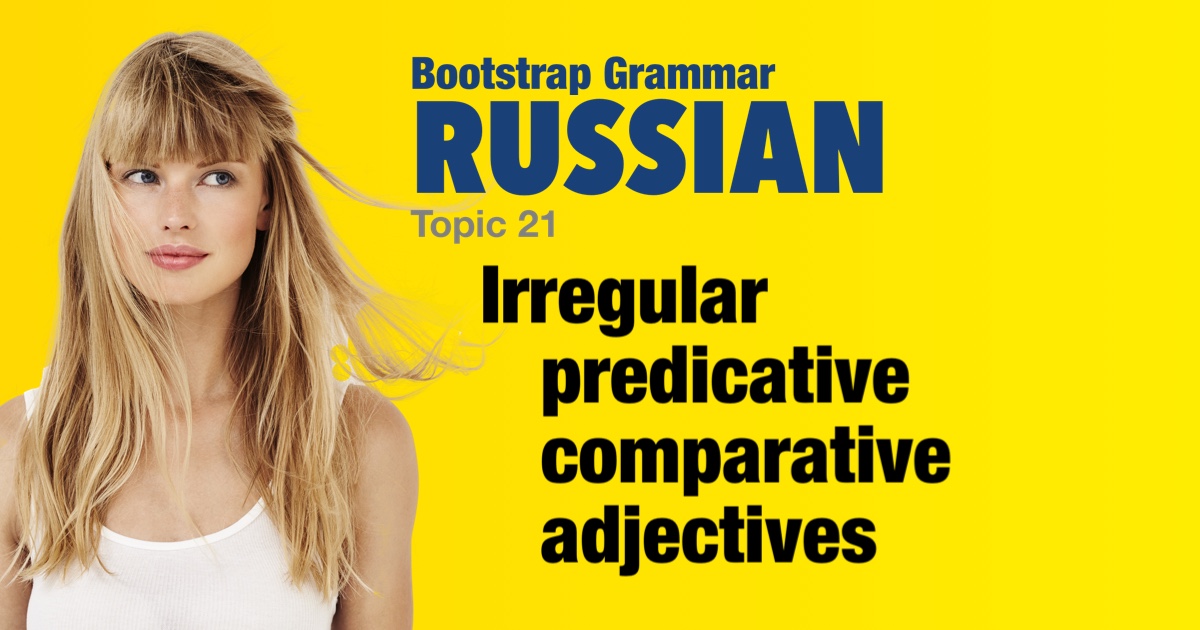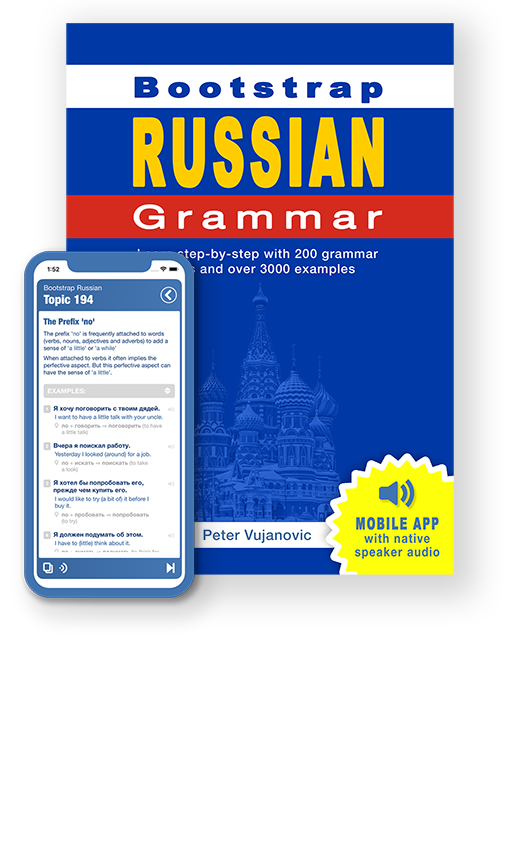Russian grammar - Irregular predicative comparative adjectives |
|||
|
|||
There are several important adjectives with irregular predicative comparative forms: • большой (big) ⇒ больше (bigger) • высокий (tall) ⇒ выше (taller) • дорогой (expensive) ⇒ дороже (more expensive) • молодой (young) ⇒ моложе (younger) • плохой (bad) ⇒ хуже (worse) • маленький (small) ⇒ меньше (smaller) • хороший (good) ⇒ лучше (better) • чистый (clean) ⇒ чище (cleaner) These do not change with gender, number or case. You can still use более (more) and менее (less) intensifiers with these but it is not standard usage. |
| Examples: | |
|
Моя машина больше, чем твоя машина.
My car is bigger than your (informal) car.
|
|
|
Наши велосипеды больше, чем ваши.
Our bikes are bigger than yours (formal).
|
|
|
Твой брат выше, чем мой дядя.
Your (informal) brother is taller than my uncle.
|
|
|
Твои туфли дороже, чем мои старые туфли.
Your (informal) shoes are more expensive than my old shoes.
|
|
|
Ваш дядя моложе, чем ваша тетя.
You (formal) uncle is younger than your aunt.
|
|
|
Эта новость ещё хуже.
This news is even worse.
|
|
|
Белый стол меньше, чем коричневый стол.
The white table is smaller than the brown table.
|
|
|
Его русский лучше, чем мой русский.
His Russian is better than my Russian.
|
|
|
Его комната намного чище, чем её комната.
His room is much cleaner than her room.
|
|
|
Эти новые поезда хуже, чем старые.
These new trains are worse than the old ones.
|
|
|
Сиденья меньше.
The seats are smaller.
|
|
|
Но билеты сейчас дороже.
But the tickets are now more expensive.
|
|
|
Хотя обогрев намного лучше.
Although the heating is much better.
|
|
|
Мои ошибки хуже, чем твои.
My mistakes are worse than yours (informal).
|
|
 |
|




